#kartuli
Text
My knees...
Fun fact Kartuli is a courting dance.
7 notes
·
View notes
Text
How do you know I’m an Eastern European (or Central-Eastern European) fan of A Song of Ice and Fire, Game of Thrones series, Fire and Blood books, House of the Dragon and generally all of the Planetos universe by George R.R. Martin?
I have a headcanon that the Valyrians, including the Targaryens, have not only a culture inspired by the Byzantine culture, but also by the Caucasian cultures. By Caucasian, I mean actual cultures of the Caucasus mountains, not the wh*te s*premacy sh*t you get in the West.
This means that the houses from the Old Valyria, including the Targaryens, have their own distinct dances and music which are performed and played only at their balls and feasts, and those dances are inspired by Georgian, Chechen, Circassian, Dagestani etc. music and dances.
I mean, c’mon, wouldn’t they all look majestic while performing dances like Kartuli, Tsdo, Qarabsha, Samaia, Simdi and many other dances from the Caucasus? (Not to mention the infamous Legzinka?)
Grab some links of the Sukhishvili Georgian National Ballet:
youtube
youtube
youtube
youtube
youtube
I just wish that we could see Rhaenyra dancing Kartuli with Laenor on their wedding or Aemond performing Tsdo, okay?
Or Daemon dancing Kartuli seductively with Rhaenyra on her wedding day to Laenor
Just kidding I just want to dance Kartuli with Ewan Mitchell as Aemond
And preferably see him performing Tsdo

#a song of ice and fire#asoiaf#asoiaf lore#asoiaf headcanon#fire and blood#game of thrones#got#House of the dragon#hotd#hotd headcanon#valyrian culture#caucasian moutains#caucasian cultures#georgia#dagestan#chechnya#ichkeria#circassians#adygea#Georgian dances#Sukhishvili#george rr martin#Youtube#rhaenyra targaryen#Daemon targaryen#laenor velaryon#aemond targaryen#house targaryen#House Velaryon
26 notes
·
View notes
Text
Ingush Grammar
[Ingush Grammar. Johanna Nichols. First Edition: March 2011. University of California Press. Series: UC Publications in Linguistics. Pages: 830. Trim Size: 7 x 10 inches. Illustrations: 1 map. Paperback. ISBN: 9780520098770]
Readers of my book reviews cannot help but notice my interest in – nay, my fascination with – linguistics and languages. I am no stranger to Professor Nichols’s work: I read her award-winning treatise Linguistic Diversity in Time and Space a few years ago and was captivated by her command of language reconstruction principles. Recently, it came to my attention that there might (in principle) be a call for persons to assist in national security-related activities who are fluent in, or at least familiar with, the Northeast Caucasian languages, especially Chechen and Dagestani. The language discussed here, Ingush, is a closely-related language with a relatively high degree of mutual intelligibility with Chechen, Dagestani and Baltsi. Since I couldn’t find a suitable book from which to learn Chechen, I thought I’d check this tidy little volume out.
“Tidy” is not the correct word for this work. It tips the scales at almost 800 pages. However, it is an undeniable tour-de-force of scholarship in the documenting of a comparatively obscure language. Prof. Nichols herself acknowledges that this tome is the culmination of about 30 years of work with Ingush, at least ten of which were spent in the homeland of the language itself, a region now known as Ingushetia in southern Russia adjacent to the Republic of Georgia and Chechnya.
The Northeast Caucasian languages are a small primary language family spoken almost exclusively in the region between the Republic of Georgia and the north end of the Caspian Sea. Significant cities in this region are Ongusht (whence the name Ingush), Groznyy (the capital of Chechnya) and Makhachkala (the capital of Dagestan). Though these languages share many features with Georgian (known as Kartuli to its speakers) and the similarly-named Northwest Caucasian languages (examples are Abkhazi and Cherkessian), they are not, in fact, related to them in any meaningful way. This may seem surprising when one looks at a map of the region. The area covered by these three language groups (Georgian is part of its own tiny language family called the Kartulian languages) is fairly small. However, the area is peppered with mountain ranges that have carved it up geographically to a point where very ancient steppe peoples had settled in individual valleys and had no direct contact with even neighboring valleys for centuries. Little wonder, then, that language families developed independently from a still-more-ancient proto-language (as yet unidentified or classified).
Ingush, as alluded to in the previous paragraph, was named after a prominent community in its sprachbund, or speaking area. Ingush people do not use this term, referring to their language as vai mott (our language) or, if speaking to non-Ingush speakers, vai neaxa mott (our people’s language). Given that the homeland for this language has at least three well-defined geographic zones (alpine highlands, piedmont, and plains), it is not surprising that various dialects of Ingush have emerged. All of these dialects are highly mutually intelligible, far from any objective criteria that would categorize them as distinct languages in their own right.
Nichols herself, in the introductory material, lists Ingush as one of the most morphologically complex languages in her experience, outstripping even daunting native American languages like Lakhota (a Siouan language of the northern Great Plains) and Halkomelem (a Salishan language from the Pacific Northwest in the USA). Ingush has unusually large inventories of elements (phonemes, etc.), a high degree of inflectional synthesis in the verb (this is similar to some native American languages, especially the Athapaskan group) and a variety of categories of words, many of which do not have an analogue in English or any Indo-European language. She comments that this might go some way toward explaining why this book took 30 years to produce!
Since the volume is so detailed, I will simply summarize my observations of its style and completeness. I confess that I haven’t actually read the entire volume – I’ve probably read about 150 pages, or nearly 20% of it all told – but I have dipped into it in various places along its length to see what it was all about. It is impossible for me to imagine that Prof Nichols missed anything; every conceivable component of Ingush seems to be covered here. The book has 35 major sections, any one of which is worthy of at least a semester-long course of study (for the subject itself, not necessarily for Ingush per se). Her writing tone and style strike an admirable balance between being very scholarly (it certainly is that) and yet being profoundly informative to a non-specialist like myself who is also not a trained linguist.
The best affirmation I can make of this book is that it is quite possibly the best template for any field linguist to follow when documenting and characterizing a language. This is certainly true for someone working with an Endangered language, of which there are literally thousands still being spoken (some just barely) in the world today. The level of commitment Prof Nichols has brought to bear on this work seems nothing short of miraculous.
This is definitely not a book for just anyone. Like attempting to read all of Proust in the original French while not actually speaking French, a true appreciation of this book requires enormous patience and strong memory skills. Prof Nichols refers to sections back and forth across the book, of necessity since linguistic elements do not exist in a vacuum. That said, to truly appreciate the scope and even grandeur of this volume will command great mental agility and focus. For anyone who is up to the challenge, I say, “Good luck – and enjoy!” Even if you never speak Ingush or travel to that part of the world, this book will teach you something useful, edifying, and mind-expanding.


[Photo credits with thanks to : Book cover © 2011 University of California Press / Portrait © 2012 Wissenschaftskolleg zu Berlin]
Kevin Gillette
Words Across Time
28 September 2022
wordsacrosstime
#Kevin Gillette#Ingush Grammar#Words Across Time#wordsacrosstime#September 2022#University of California Press#Johanna Nichols#Linguistics.#Language Reconstruction#Northeast Caucasian Languages#Chechen#Dagestani#Ingush#Baltsi#Ingushetia#Southern Russia#Republic of Georgia#Chechnya#Caspian Sea#Ongusht#Groznyy#Makhachkala#Dagestan#Kartuli#Northwest Caucasian Languages#Kartulian#vai mott#Lakhota#Siouan#Halkomelem
14 notes
·
View notes
Video
youtube
LINK FOR SUBSCRIBE
HTTPS://VIDEGME
YOUTUBE CHANNEL HERE
████████████████████████████████████████████
ENLACE PARA SUBSCRIBIRSE
HTTPS://VIDEGME
CANAL YOUTUBE AQUÍ
▓▓▓▓▓▓▓▓▓▓▓▓▓▓▓▓▓▓▓▓▓▓▓▓▓▓▓▓▓▓▓▓▓▓▓▓▓▓▓▓▓▓
LINK FULL
VIDEGME CATALOG
CATALOG HERE
▒▒▒▒▒▒▒▒▒▒▒▒▒▒▒▒▒▒▒▒▒▒▒▒▒▒▒▒▒▒▒▒▒▒▒▒▒▒▒▒▒▒▒▒
ENLACE CATALOGO
CATALOGO VIDEGME
COMPLETO AQUÍ
░░░░░░░░░░░░░░░░░░░░░░░░░░░░░░░░░░░░░░░░░░░░
#god #of #war #ragnarok #ps5 #full #game #level #02 #chapter #01 #Kratos' #dream #1080p #60fps #sharpen
Subscribe you to my channel here this would help me a lot available in 60 languages.
If there is something I can do for you, do not doubt to tell me.
In English: Link to go to Computer
In English: Link to go to smartphone channel
In English: Link to go to smartphone video
Inglés - English
Español - Spanish
Holandés - Nederlands - Dutch
Azerí - Azərbaycan - Azerbayjani
Alemán - Deutsche - German
Latín - Lingua Latīna - Romae Imperiam
Bielorruso - Беларуская Biełaruskaja - Belarusian
Francés - Français - French
Bosnio - Босанци Bosanci - Bosnian
Portugués - Português - Portuguese
Búlgaro - български bəlɡarski - Bulgarian
Serbio - српски srpski - Serbian
Armenio - հայերեն hayeren - Armenian
Checo - čeština - Czech
Danés - Dansk - Danish
Estonio - Eesti - Estonian
Finés - Suomi - Finnish
Georgiano - ქართული ენა kartuli ena - Georgian
Griego - Ελληνικά - Greek
Chino - 中文 Zhōngwén - Chinese
Húngaro - Magyar - Hungarian
Islandés - íslenka - Icelandic
Hindú - हिन्दी - Hindi
Indonesio - Bahasa Indonesia - Indonesian
Hebreo - עִבְרִית ʿĪvrīt - Hebrew
Italiano - Italiano - Italian
Japones - 日本語 Nihongo - Japanese
Kazajo - қазақ qazaq - Kazakh
Suajili - Kiswahili - Swahili
Letón - Latviešu - Latvian
Lituano - lietuvių - Lithuanian
Luxemburgués - Lëtzebuergesch - Luxembourgish
Macedonio - Mакедонски Makedonski - Macedonian
Malayo - Melayu - Malay
Maltés - Malti - Maltese
Persa - رسی, Fārsī - Persian
Euskera - Euskaldunak - Basque
Javanés - ꦧꦱꦗꦮ - Javanese
Nepalés - नेपाली -Nepali
Noruego - Norsk - Norwegian
Úrdu - ردُو - Urdu
Filipino - Wikang - Tagalog
Polaco - Polski - Polish
Irlandés Gaeilge - Irish
Rumano - Română - Romanian
Ruso - Русский - Russian
Maratí - मराठी - Marathi
Eslovako - slovenčina, slovenský - Slovak
Esloveno - slovenski slovenščina - Slovene Slovenian
Afrikáanos - afrikaans - Afrikaans
Coreano - Hangugeo - Korean
Albanés - shqipë - Albanian
Sueco - Svenska - Swedish
Tailandés - ภาษาไทย, Phasa Thai -Thai
Turco - Türkçe - Turkish
Ucraniano - українці ukraintsi - Ucraininan
Vietnamita - Tiếng Việt - Vietnamese
Catalán Valenciano - català, valencià - Catalan Valencian
Galés - Cymraeg - Welsh
#youtube#godof war ragnarok ps5 full game level 02 chapter 01 Kratos' dream 1080p 60fps sharpen#god of war ragnarok ps5 full game level 02 chapter 01 Kratos' dream 1080p 60fps sharpen#god#of#war#ragnarok#ps5#full#game#level#02#chapter01#level02#kratos#dream#1080p#60fps#sharpen
2 notes
·
View notes
Text
Wrapped up the last book:
This book stopped in 2001, so it didn't have to deal with the impolitic reality that the fragile post-Soviet democracy turned into a pro-Russian dictatorship under the misrule of one Viktor Orban. It did, however, cover the entire span of Hungarian history from the migration to Europe and the Battle of Lechfeld, which settled the brief age of Magyars as one of many migrant horse nomadic Asian cultures that rampaged over Europe and marked the transformation of them, like the Estonians and Finns, into a very self-consciously European and Europeanized culture.
The reality of Magyar culture, like that of Finland, Estonia, and the Basques is that they are small islands of non Indo-European culture in a vast sea of Indo-European languages. This in turn has been something that the Hungarians are always very consciously aware of as well, and it accounts in no small part for old model feudal Hungary preserving Latin as the official language of the Hungarian assemblies into the mid-19th Century. Latin was more easily understood by the Indo-European cultures around them than Magyar, which like Finnish looks like a sneeze when written and unlike Finnish tends to sound like one in speech (but not nearly as bad as Welsh in reading or trying to speak Kartuli, f'rex).
This accounts for much of the self-imposed view of Hungarians of their culture, of their successes, and their failures. Until the Treaty of Trianon the kings and magnates of Hungary led a state that would go on to account for over half the territory of the future Habsburg Empire, and some of the kings, like Matthias Corvinus and Isvtan I/Stephen went on to fame, most of them fitting outside Hungary into the generic grey blur of Central and Eastern Europe that isn't Habsburg, German, or Russian.
Hungarians managed to preserve the huge state on paper, even if the institutions became increasingly sclerotic in a kind of inverse mirror of Poland. No Liberum Veto, instead overmighty subjects without whom Hungary could not be governed, but with whom it underwent a time of serfdom matching anything in the broader expanse of Muscovite and Romanov Russia.
Nationalism became the bane of this state as it did the rest of the world and this one more than most, and Trianon is to it what Sevres is to Turkey, the ever-ready excuse that ultimately played a minor role in the rise of Orban and in the willingness of Hungary to join with Hitler.....and the Hungarian view of periodic uprisings on behalf of freedom as it defined it under Kossuth and Imre Nagy in 1956 also co-existed with a pattern of Hungarian freedom ridden down by Cossacks or gunned down by canister fire from Soviet tanks.
This is a part of the modern duality of Hungary, a state consciously aware that most of its neighbors were once peasants farming the fields of Hungarian magnates, and aware of a democratic-bulwark tradition that has seen great heroism producing a string of disasters matching much of the tradition of Poland when the Slzachta finally buried the commonwealth and the peasants took up where their overlords left off.
9/10.
2 notes
·
View notes
Text
21-year-old Moscow native Savely Frolov started speaking out against Russia’s full-scale invasion of Ukraine right after it was launched, and he continued condemning the war even after it brought him a misdemeanor charge and a 10-day prison sentence. Then, after Putin’s mobilization announcement in September, Frolov, like thousands of other Russians, tried to flee to Georgia through the Verkhny Lars border checkpoint. And that is where he disappeared. One month later, he became the first person in Russia to face conspiracy to commit treason charges for planning to “join the enemy.” Frolov is now facing up to 10 years in prison for his interest in the Freedom of Russia Legion, a unit of Russian soldiers fighting for Ukraine. Valeria Kirsanova, the editor-in-chief of the outlet Paper Kartuli, spoke to Frolov’s mother, his lawyer, and his best friend about his story. With permission, Meduza is publishing an abridged version of her article in English.
‘Scrambling to get out of Russia’
A photo on Instagram shows a curly-haired young man in a purple baseball cap and headphones sitting on a concrete barrier, the Caucasus mountains and a long line of traffic in the background. “Scrambling to get out of Russia, 5 km [about three miles] from the border,” read the caption. The picture, posted on September 29, is the most recent image shared on Savely Frolov’s account. It was taken a week after President Putin mobilized hundreds of thousands of people into the military, during Frolov’s first attempt to get out of Russia.
Frolov’s friend Malika Bakhtiarova was waiting for him in Tbilisi, and the two were in near-constant contact that day. “The Georgian border officers were filtering the crowd somewhat randomly,” she said. “[Savely] told them, honestly, that he had 20,000 rubles [about $290] with him, and they refused him. They said it wasn’t enough money,” said Bakhtiarova.
A month later, Frolov decided to try again: on October 30, he boarded a bus from Vladikavkaz to Tbilisi. At about 11:00 a.m., however, he wrote to Bakhtiarova that he was going to be searched by federal agents. Then he disappeared.
At 5:00 p.m., Bakhtiarova received a text from Frolov’s phone. The message said to send her location, supposedly so that Frolov could order a taxi to reach her. According to Bakhtiarova, however, the two had agreed in advance that she would meet him in her car, so the request didn’t make sense. She tried to call him, but he didn’t answer and stopped responding to messages.
The next day, Frolov called his parents to tell them he had been arrested for 15 days for disorderly conduct. He said he was alone in a Vladikavkaz prison cell, and that he wouldn’t be given his phone again until he was released.
Soon after, six Federal Security Service officers from North Ossetia showed up at Frolov’s registered place of residence in the Moscow region.
“Only our 14-year-old daughter was home,” Saveley Frolov’s mother, Ekaterina Frolova, told Paper Kartuli. “She called me, sobbing, ‘I’m scared!’ They wouldn’t even let her close the apartment. They just said, ‘Call your parents.’ Our neighbor is an 85-year-old man whom we take care of, and he came to the door and refused to let them in.”
According to Ekaterina, the officers were especially interested in her son’s outdoor gear, such as his snowboarding boots, his tent, and his sleeping bag.
‘There could be dozens of stories like this’
On November 14, when Savely Frolov was scheduled to be released, Ekaterina boarded a one-way flight to Vladikavkaz; she planned to buy two tickets back home after reuniting with her son. But minutes after Frolov left the prison, before he’d even seen his mother, he was arrested once again — this time for allegedly disobeying border agents. He was sentenced to another 15 days in prison. That sentence was followed by a third, this one for more “disorderly conduct.”
On December 2, state investigators opened a felony case against Frolov on treason charges. Prosecutors say he was “preparing to defect to the enemy.” It’s the first known case of its kind in Russia.
Vladimir Putin officially made “defecting to the enemy” tantamount to treason in July. The crime is punishable by anywhere from 12 to 20 years in prison. Investigators claim Savley Frolov planned to travel through Georgia to Turkey, then to Poland, and finally to Ukraine, where they say he intended to join the Freedom of Russia Legion. According to his lawyer Yevgeny Smirnov, however, Frolov had neither a ticket to Istanbul nor a Shengen visa, which he would have needed to go through Poland.
“This is an emerging trend,” said Yevgeny Smirnov. “The FSB’s border service ‘uncovered’ this crime by reading [Frolov’s] messages. And judging by how many phones they’ve looked through, especially during the first wave of mobilization, and how little it takes to open a criminal case, I think the number of stories like this could reach into the dozens. We don’t currently know the total number because many treason cases are not made public.”
‘A principled bonehead'
Savely Frolov, a longtime critic of the Putin regime, graduated from high school in Naro-Fominsk, a suburb of Moscow. After studying physical education in college, he started working as an escape-room actor and as a children’s fencing instructor. In the summer, he would travel to the Altai region to work as a yacht and kayak instructor at a charity camp for children with cerebral palsy.
“He’s the kind of older brother who won’t wipe your snot but who will teach you to make a fire and catch a fish,” said Bakhtiarova, who met him at the Altai camp. “The children just loved him. He knows how to support them without making them feel pitied.”
In Moscow, Bakhtiarova worked as a mural painter, and Frolov began helping her. On February 24, they started standing at a metro stop and distributing flyers urging people to write to their State Duma deputies and attend anti-war protests. Soon, they were both fined and given misdemeanor charges; later, Frolov was arrested for 10 days.
As fall drew near, the two friends concluded that their efforts were futile, Bakhtiarova said. She moved to Georgia, while Frolov stayed in Moscow to earn some more money.
In Tbilisi, Bakhtiarova organized a small fencing club for children; she and Frolov planned to turn it into a business in the future. For that reason, when he set out for Georgia himself, Frolov brought a fencing sword, a projector, a wooden shield, camouflage pants, and tactical boots in the trunk of his car. Investigators later cited the gear as evidence that he was planning to take up arms against Russian troops in Ukraine.
Bakhtiarova assumed Frolov would erase the words “Slava Ukraini” from his backpack before trying to cross the border. But when she learned that he hadn’t, she wasn’t surprised: “[He’s a] principled bonehead," she said.
‘They said he’d applied to join the legion’
In Vladikavkaz, Ekaterina Frolova has been granted two visits with her son. Savely told her that the officers “beat him, promised to rape him with a broom, and threatened his family” after he was arrested at the border, and that that’s why he agreed to give them access to his phone.
With no power and nobody to talk to in his cell, Savely told his mom, he’d lost count of the days and had even started burning his arms with cigarettes “just to feel something.” After talking to Ekaterina, though, Savely’s spirits rose again: “It was confirmation that he hadn’t been abandoned.”
From the time Savely was a baby, Ekaterina says, she taught him to fight for his beliefs, though she “didn’t think his beliefs would be so political.” At home, the two of them would frequently get into intense arguments over their conflicting views; Savely would tell his parents they were “old already and don’t understand anything, whereas he, his sister, and his brother would have to live in this Russia [for a long time].” Eventually, the family banned the topic of conversation altogether.
Savely usually visited his parents several times a month.
“When he spoke, he did so openly; he never hid anything. Sometime around the start of fall, he came over and casually mentioned that in June, he’d applied to join the legion. There’s some legion where they fight against the Russian authorities, but from the Ukrainian side,” said Ekaterina. “But nobody would take him. He wrote to them, ‘Two months have passed. Why haven’t I gotten an answer?’ They said, ‘Oh, we’ve had some technical issues.’ And that was the end of the correspondence.”
Ekaterina never saw the messages herself, but she doesn’t think Savely deleted them. Malika Bakhtiarova, meanwhile, says that she and Frolov only spoke offhandedly about whether or not the legion exists, and that he never mentioned wanting to join it.
Another friend of Frolov’s told the independent outlet The Insider that in late November, FSB officers came to his workplace and forced him to confess to “training activists” to go to Ukraine and fight with the Ukrainian Armed Forces, and that they read his messages with Frolov aloud.
“There were messages where we discussed the special military operation, and what [the officers] mostly latched onto was a half-joking message about planning to [join the war], to which I responded approvingly, going along with the joke,” said the friend. He said he’s confident that Savely Frolov was never really planning to join the Freedom of Russia Legion.
‘It’s just a circus’
Frolov is currently set to remain in remand prison in Vladikavkaz until February 11, 2023. He’s not allowed to communicate with his relatives. His lawyer, Yevgeny Smirnov, said that this is an illegal but common practice aimed at completely suppressing the will of a suspect. He also said that FSB officers have interrogated him repeatedly without a lawyer present.
According to Smirnov, the amount of time between a person’s arrest and their sentencing is usually about two years, so he’s advised Frolov’s family to “prepare themselves.”
Frolov himself asked his lawyer to tell Malika Bakhtiarova that he’s learned to stand on his hands, that he read The Witcher, and that the books by theoretical physicist Richard Feynman she sent him are “too complicated.”
“One time, he had run out of paper, so he wrote me a note on toilet paper that said, ‘Take this sheet, use it to wipe yourself, and remember me.’ The lawyer sent me a picture of it. Savely loves jokes like that,” said Bakhtiarova.
Ekaterina Frolova doesn’t understand why her son is being charged with treason if he willingly gave up his phone and didn’t try to hide anything. “The evidence of treason just isn’t there. Maybe he just wanted to check the [Freedom of Russia Legion] site,” she said.
Smirnov noted that Savely is being charged not with treason but with conspiracy to commit treason, a crime punishable by up to 10 years in prison. The lawyer noted that his defendant discussed the “legion” with his friend before the State Duma changed the law to equate “defecting to the enemy” with treason.
“Like a prayer, he constantly repeats, ‘Everything’s fine with me, don’t worry. Mom, why are you crying? This is just a big circus. Look, I’m laughing at it,’” said Ekaterina Frolova. “But me, I’m not laughing,” she adds. “I tell him, ‘Even if this is a circus, who does that make you? A spectator, a clown, the ringmaster, an acrobat, or an animal in a cage? And he has no answer, of course.”
5 notes
·
View notes
Text
20/30 magustoit
kas sa oled keegi, kes jätab magustoiduks. kas sa oled lõbu venitaja. kas sa lükkad edasi seda, mida sa kõige kõige rohkem tahad. lükkad seda kõigepealt kõrvale. väldid esialgu. keskendud alguses mujale. magusa magusa plaaniga. kas sa järad kannatliku mõnuga end läbi kartuli ja kaalika, samal ajal mõeldes (aga ainult mõeldes) selle koogitüki peale. eelseisva rõõmu judinad juba ümisemas. kas sa lähed esimesel õhtul voodisse ainult nendega, kellega sul pikemat plaani pole. ja ajad pikaldast kahemõttelist võib-olla iba nendega, kellega tunned niisugust ajuniitvat tõmmet, et juba see tõmmegi sõidutab tervet katust. või näiteks märkad teda (jaa teadküll T E D A) kohe peole saabudes, aga veedad terve õhtu vanade tuttavatega tühjast ja tähjast lobisedes. tema poole vaevu vaadates. seda rõõmu edasi lükates. ootuste ootamise elevuses. naudingut, isegi mitte naudingut. naudingu saabumist venitades. ja pärast tegelikult kogu võimalust mööda lastes. kook sai ammu otsa. sel ajal, kui sina alles soolast suppi helpisid ja oma koogi-fantaasiaid hellitasid. teised sõid selle ära ja sulle ei jäänudki. sulle jäigi ainult magus mahlane täitmata kius. nauding ohjadest, mis sa ise enesele panid. vaid idee ja himu, mille peatne kunagine eelolev täitma hakkamise ootus sind nuumas. oli ju hea.
aga huvitav, kas keegi jätab praegu sind ka magustoiduks.
ja kas sa saad ka enne otsa, kui tal sinu ootamise mõnust isu täis saab. kas saabki.
3 notes
·
View notes
Text
23.07.22 Maçka - Hopa

Nach dem Gebirge gestern gab es heute noch einmal einen Beachday. Wie so oft gab es ein reichhaltiges Frühstück, diesmal luden mich Hasan und sein Bruder, die Betreiber des Zeltplatzes ein. Und Google sei dank, kann man sich heutzutage dank des Übersetzers wunderbar unterhalten, die Technik hat glücklicherweise riesige Fortschritte gemacht, und die Übersetzungen ergeben meist Sinn. Ich weiß nun um die Probleme der lokalen Tourismusindustrie, weiß, wer möglicherweise das Land zugrunde richtet und bestenfalls außer Landes geworfen werden müsste, was ich aber natürlich nicht schreibe, damit es spannend bleibt, denn bald wird ja hier im Land gewählt, und hier in der Gegend ticken die Herzen Republikanisch , was bei uns ungeföhr der SPD entspröche. Die kemalistische Partei Atatürks, Cumhuriyet Halk Partisi, steht hier hoch im Kurs, der Rest des Landes ist sicher auch irgendeiner Meinung. 2023 wird neu gemischt.
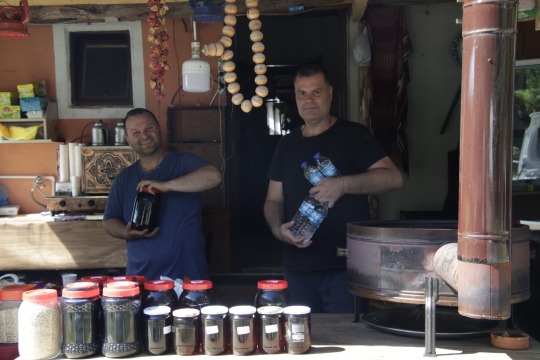
Auf dem Weg von Maçka nach Hopa ist man, wie ich gestern ja schon schrieb, recht schnell wieder am Meer, und um Trabzon herum , mit 780000 Einwohnern recht groß, gibt es die übliche Industrie, viel Tourismus, steile Felsen an der Küste, und mit Trabzon und Rize gleich zwei Airports, die in guten Zeiten für Tourismusnachschub sorgen. Normalerweise sind das ca 45 Millionen Besucher pro Jahr, und damit ist die Türkei das 6.meistbesuchte Land der Erde. Corona und Inflation, nun noch der Angriff der Russkis auf die Ukraine, aus beiden Ländern kamen sonst die meisten Touristen, all das trägt nicht dazu bei, dass die Branche gut dastehen könnte. Viele Angefangene Hotelbauten harren ihrer Fertigstellung, aber optimistisch ist niemand.


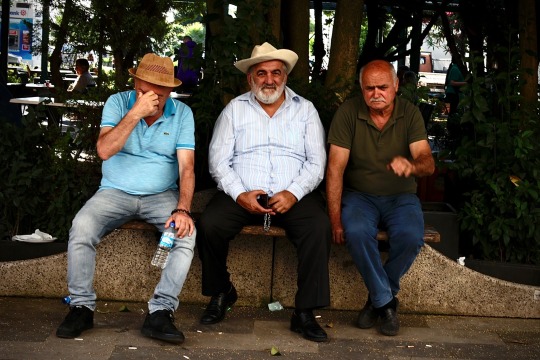

Für mich schließt sich heute der Kreis zum 17.10.2017, an diesem Tag nahm ich vom Nachbarort Batumi aus die Fähre übers schwarze Meer, landete in Odessa, und beendete von da aus meine einjährige Reise über diesen wunderbaren Planeten. Soviel hat sich verändert seitdem, und die Fähre fährt nun nicht mehr nach Odessa. Es ist ein seltsames Gefühl, über das schwarze Meer zu sehen.
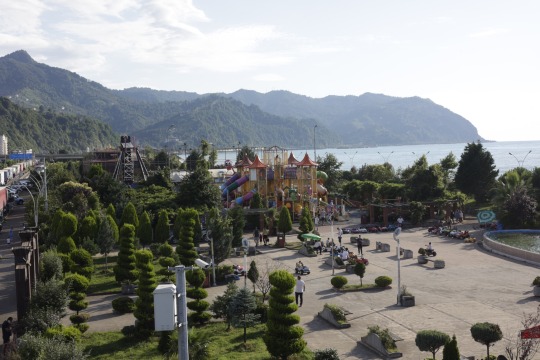
An der Grenze zu Georgien stauen sich die LKW auf einer Strecke von ca 15km, krass. Ich musste an Manfred Krugs “Auf Achse” denken.
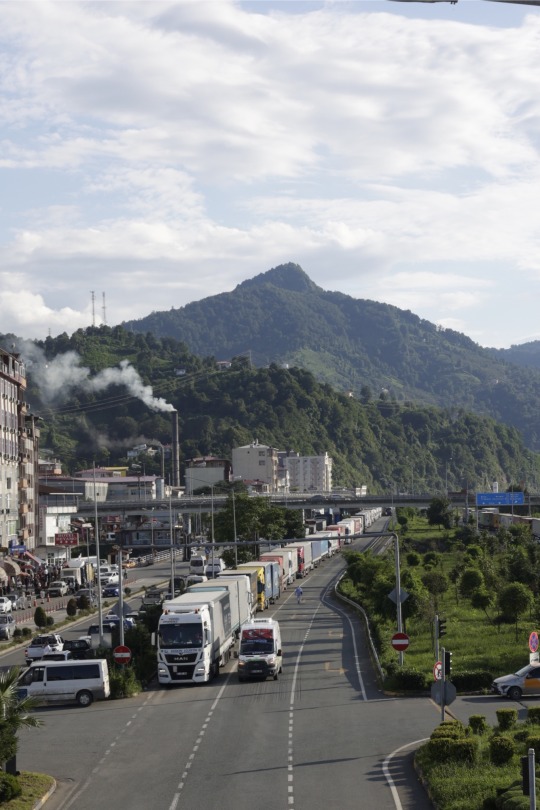
Das Zelt baue ich auf am Strand kurz vor der Grenze, better Platz, kleines Restaurant und schöner Blick. Außerdem wie immer asiatische Klos. Wenn ich mal Zeit hab, bau ich mir sowas zuhause ein. Besser für den Körper und hygienischer.


Morgen geht es nun erstmalig nach Süden. Hohe Berge erwarten mich, und fremde Gegenden, sicher eine völlig andere Welt als hier an der wunderschönen Schwarzmeerküste und ihrem Hinterland.
2 notes
·
View notes
Photo

«Погоревали — и хватит». Российские дипломаты разбирают мемориалы памяти Навального
Сотрудники российских посольств разбирают мемориалы, которые люди организовали в память о политике Алексее Навальном.
Так, в Тбилиси российские дипломаты начали разбирать стихийный мемориал в память о Навальном возле секции интересов России при посольстве Швейцарии в Тбилиси, передает Paper Kartuli. Они складывают цветы и свечи в мусорные пакеты. На замечание одной из активисток сотрудник, убиравший мемориал, ответил: «Погоревали — и хватит. Сколько вы еще будете здесь цветы хранить?»
В Ереване местная полиция заявила, что мемориал — цветы и свечи возле ограды посольства, которые люди начали нести в день смерти политика 16 февраля — убрали коммунальные службы города. По словам активистов, цветы исчезли ночью. В Гамбурге мемориальные цветы собрал и выбросил мужчина, вышедший с территории российского посольства. Он грубо оттолкнул одну из активисток.
Подписаться / Читать дальше
0 notes
Text
Types of Georgian dance
Kartuli (ქართული)
Kartuli dance is a romantic/wedding dance. It is performed by a dance couple. During the dance, the man is not allowed to touch the woman and must keep a certain distance from his partner. The man’s upper body is motionless at all times. It shows that even in love, men must control their feelings. The man focuses his eyes on his partner as if she were the only woman in the whole world. The woman keeps her eyes downcast at all times and glides on the rough floor as a swan on the smooth surface of a lake. There have been only a few great performers of Kartuli including Nino Ramishvili, Iliko Sukhishvili, Iamze Dolaberidze, and Pridon Sulaberi

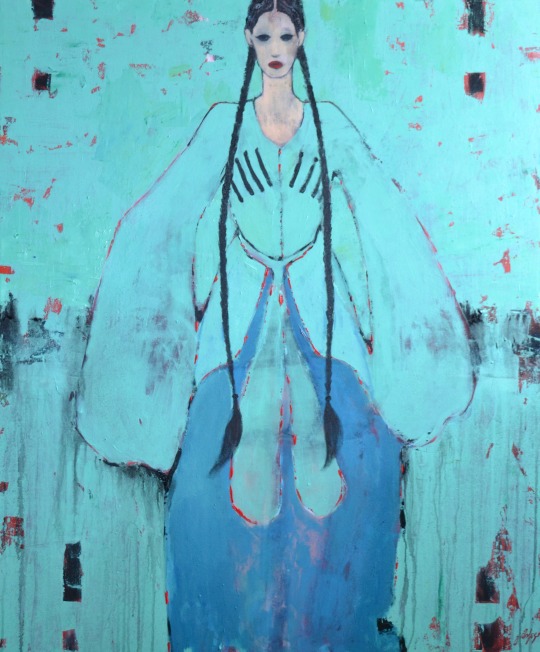
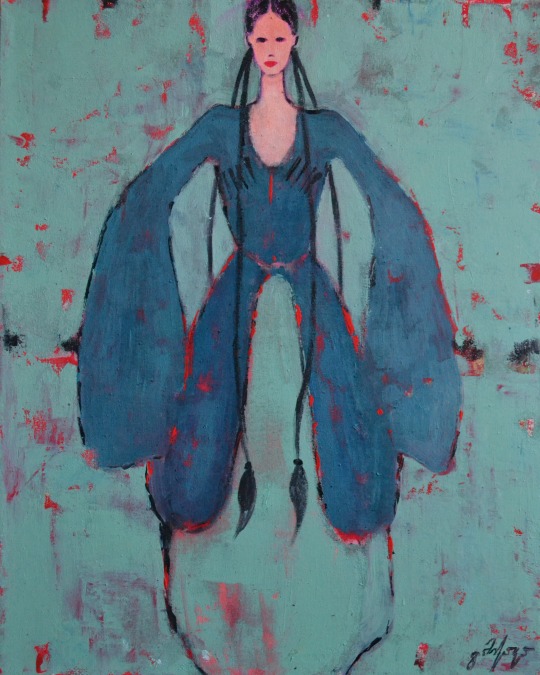
Khorumi (ხორუმი
The dance was originally performed by only a few men. However, over time it has grown. In today’s version of Khorumi, 30–40 dancers can participate, as long as the number is odd. The dance has four parts: a search for a campsite, the reconnoiter of the enemy camp, the fight, and the victory and its celebration. It is strong and simple but distinctive movements and the exactness of lines create a sense of awe on stage.
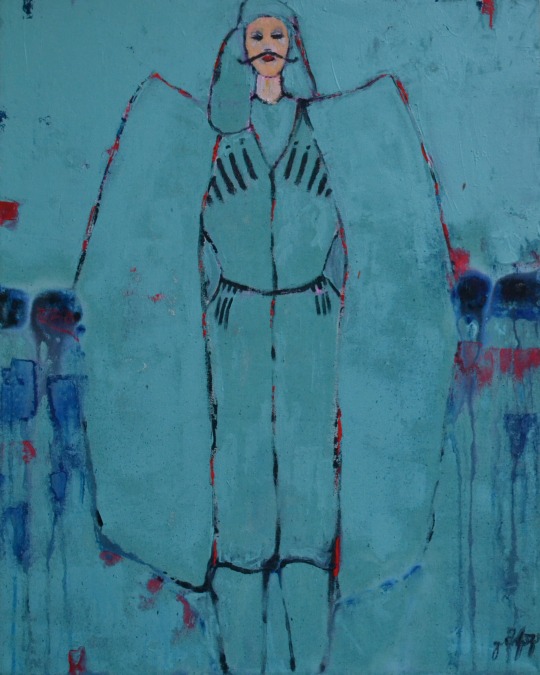
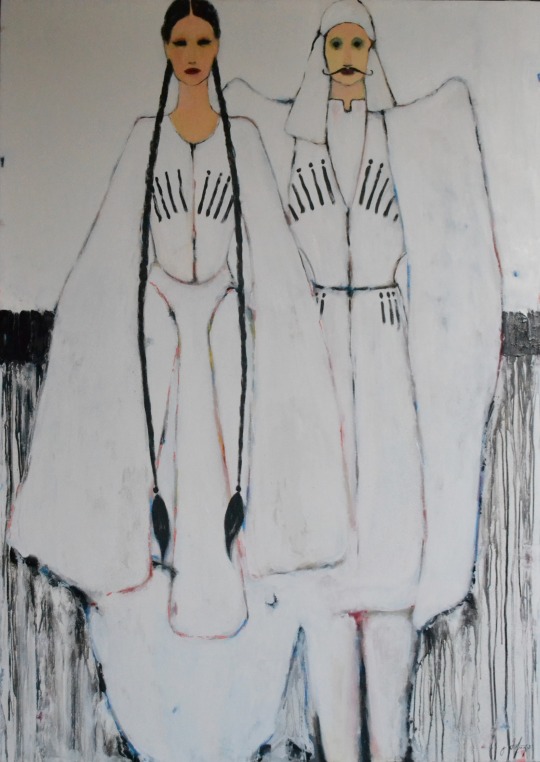
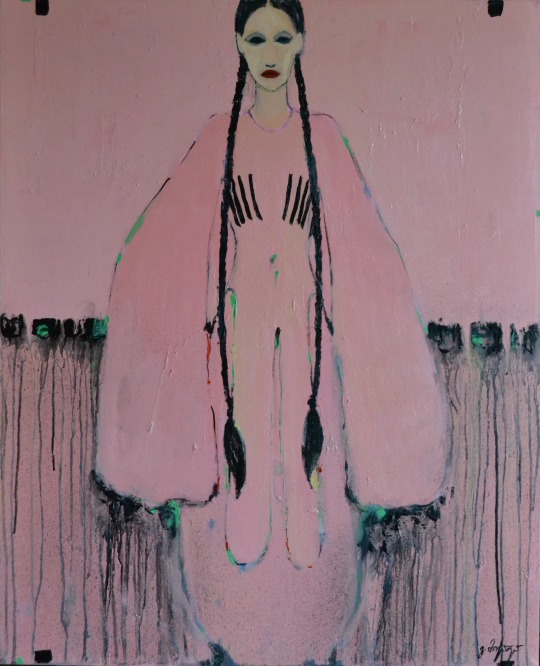
The dance incorporates the themes of search war, and the celebration of victory as well as the courage and glory of Georgian soldiers. Khorumi is traditionally accompanied by instruments and is not accompanied by clapping. Drum (doli) and the bagpipe (chiboni) are two key instruments to accompany Khorumi. Another unique element of Khorumi is that it has a specific rhythm, based on five beat meter (3+2).
Acharuli (აჭარული)
Acharuli also originated in Acharuli, which is where it gets its name. Acharuli is distinguished from other dances with its colorful costumes and the playful mood that simple but definite movements of both men and women create on stage. The dance is characterized with graceful, soft, and playful flirtation between the males and females. Unlike Kartuli, the relationship between men and women in this dance is more informal and lighthearted.
Partsa (ფარცა)
Partsa originated in Guria and is characterized by its fast pace, rhythm, festive mood, and colorfulness. Partsa mesmerizes the audience with not only speed and gracefulness, but also with “live towers.”
Kazbeguri (ყაზბეგური)
Kazbeguri originated in the Kazbegi Municipality in Caucasus Mountains of Georgia. The dance was created to portray relatively cold and rough atmosphere of the mountains, shown through the vigor and the strictness of the movements and foot stomping. This dance is performed mainly by men. Costumes are a long black coloured shirt, black trousers, a pair of black boots, and black headgear. Musical instruments include bagpipes, a panduri, a changi, and drums.[3]
Khanjluri (ხანჯლური)
Khanjluri is based on the idea of competition. Khanjluri is one of those dances. In this dance, shepherds, dressed in red chokhas (traditional men’s wear) compete with each other in the usage of daggers and in performing complicated movements. One performer replaces another, and the courage and skill overflow on stage. Since Khanjluri involves daggers and knives, it requires tremendous skill and practice on the part of the performers.
Khevsuruli (ხევსურული)
This mountain dance unites love, courage, respect for women, toughness, competition, skill, beauty, and colorfulness into one performance. The dance starts out with a flirting couple. Unexpectedly, another young man appears, also seeking the hand of the woman. Vigorous fighting between the two men and their supporters ensues. The quarrel is stopped temporarily by the woman’s veil. Traditionally, when a woman throws her head veil between two men, all disagreements and fighting halts. However, as soon as the woman leaves the scene, the fighting continues. The young men from both sides attack each other with swords and shields. On some occasions, one man has to fight off 3 attackers. At the end, a woman (or women) comes in and stops the fighting with her veil once again. However, the finale of the dance is “open” –meaning that the audience does not know the outcome of the fighting. Khevsuruli is very technical and requires intense practice and utmost skill in order to perform the dance without hurting anyone.
Mtiuluri (მთიულური)
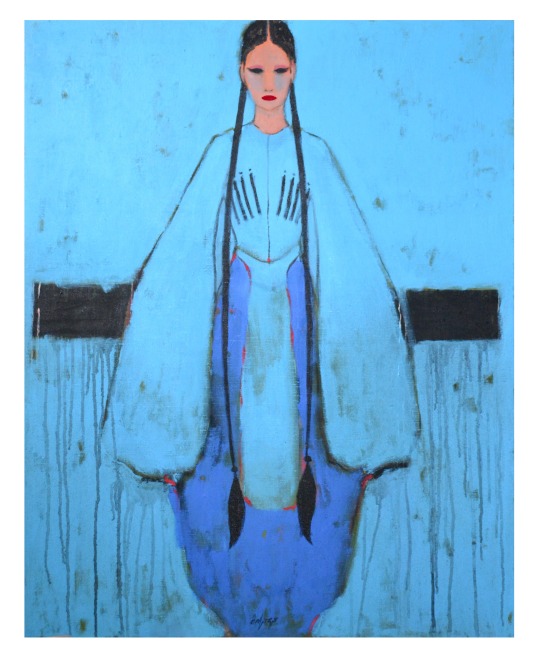
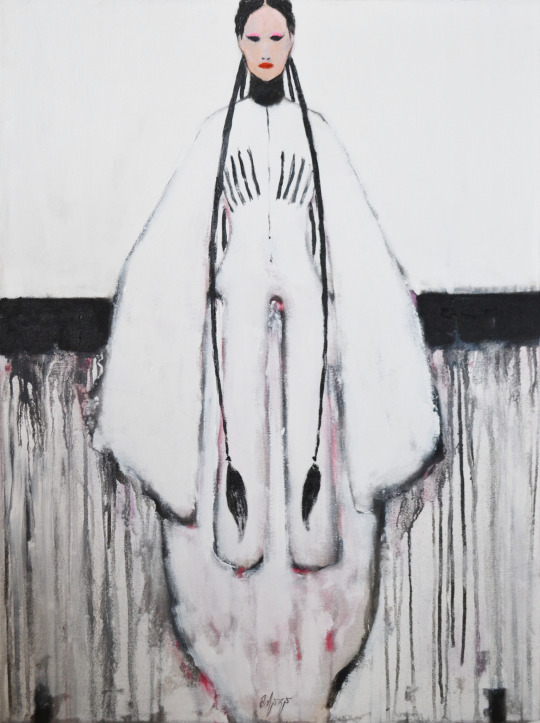

Mtiuluri is also a mountain dance. Similar to Khevsuruli, Mtiuluri is also based on competition. However, in this dance, the competition is mainly between two groups of young men and is a celebration of skill and art. At first, groups compete in performing complicated movements. Then, the girl’s dance, which is followed by an individual dancer’s performance of amazing “tricks” on their knees and toes. At the end, everyone dances a beautiful finale. This dance is reminiscent of a festival in the mountains.
Simdi and Khonga
Ossetian folk dances. The costumes in both dances are distinguished with long sleeves. The headwear of both the women and the men are exceptionally high. However, in Khonga or Invitation Dance (Ossetian Wedding Dance), men dance on demi-pointe, entirely on the balls of their feet. Khonga is performed by a few dancers and is characterized by the grace and softness of the movements. Simdi is danced by many couples. The beauty of Simdi is in the strict graphic outline of the dance, the contrast between black and white costumes, the softness of movements, and the strictness of line formations.
Kintouri (კინტოური) and Shalakho
Kintouri portrays the city life in old Tbilisi. The dance takes its name after “Kintos” who were small merchants in Tbilisi. They wore black outfits with baggy pants and usually carried their goods on their heads around the city. When a customer chose goods, a kinto would take the silk shawl hanging from his silver belt and wrap the fruits and vegetables in them to weigh. Kintos were known to be cunning, swift and informal. Such characteristics of Kinto are well shown in Kintouri. The dance is light natured.[4]
Samaia (სამაია)
Samaia is performed by 3 women and, originally, was considered to be a Paganism dance. However, today’s Samaia is a representation of Tamar of Georgia, who reigned in 12th-13th centuries and was the first empress of Georgia. There are only 4 frescos that keep the much-revered image of Empress Tamar. Simon Virsaladze based the costumes of Samaia on the Empress’s clothing on those frescos. In addition, the trinity idea in the dance represents Tamar of Georgia as a young princess, a wise mother and the powerful empress. All these three images are united in one harmonious picture. The simple but soft and graceful movements create an atmosphere of beauty, glory and power that surrounded the Empress’s reign.[5]
Jeirani (ჯეირანი)
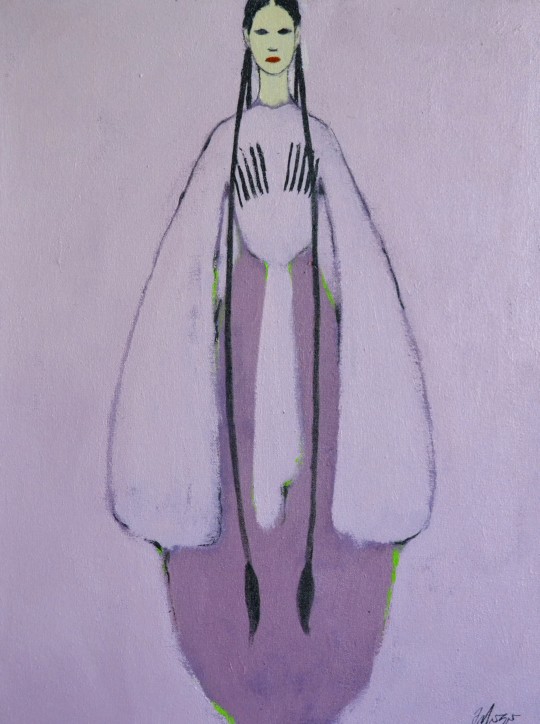
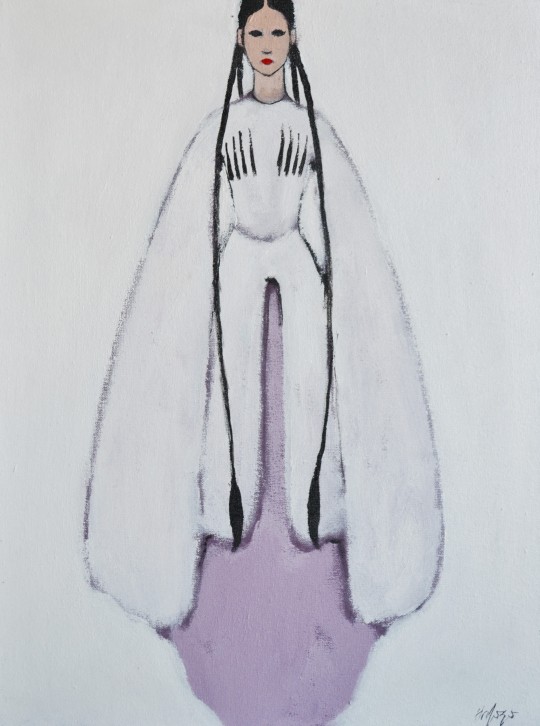
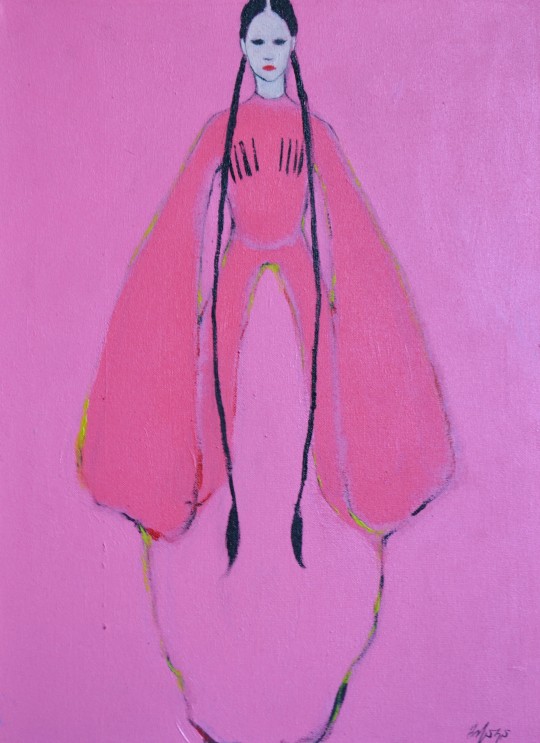
The word “jeirani” means gazelle. This dance tells the story of the hunt. It was choreographed by Nino Ramishvili for the Georgian National Ballet. The dance incorporates classical ballet movements and a hunting scene.[6]
Karachokheli (ყარაჩოხელი)
Karachokheli were the ordinary craftsman of Georgia. They typically wore black chokha (traditional men’s wear). They were known for hard work yet a carefree life, as well as a love of Georgian wine and beautiful women, all of which are well represented in the dance.
Davluri (დავლური)
Davluri is also a city dance, but unlike Kintouri and Karachokheli, it portrays the city aristocracy. The dance is similar to Kartuli. However, the movements in Davluri are less complicated and the male/female relationship is less formal. The dance is performed by many couples and with the music and colorful costumes, paints a picture of an aristocratic feast on stage.[7]
Mkhedruli


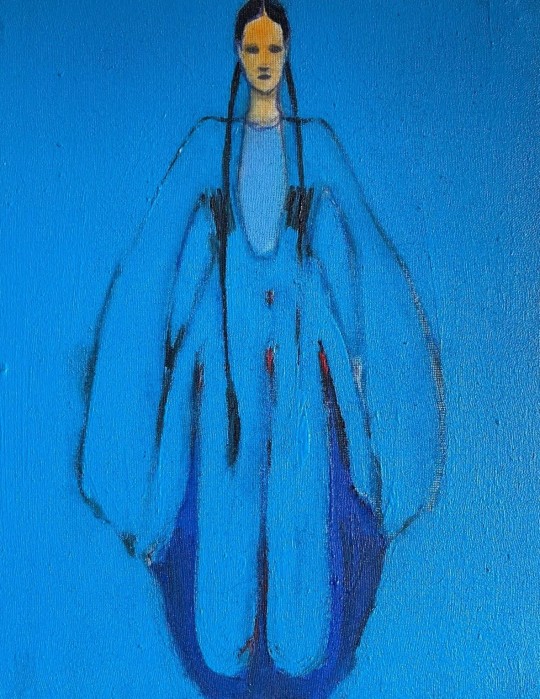
The word “Mkhedari” means cavalryman. The dance begins in a raging tempo, becoming more and more violent. The legs of the cavalryman imitate the fast movements of the horse, while their body and arm movements impersonate the battle with enemy.
Parikaoba (ფარიკაობა)



A warrior dance from Khevsureti in northeast Georgia. A girl enters, looking for her beloved. He appears only to encounter others, precipitating an energetic battle with sword and shield. When the girl throws down her headdress, the men must stop according to tradition, only to renew their battle soon after.[8]
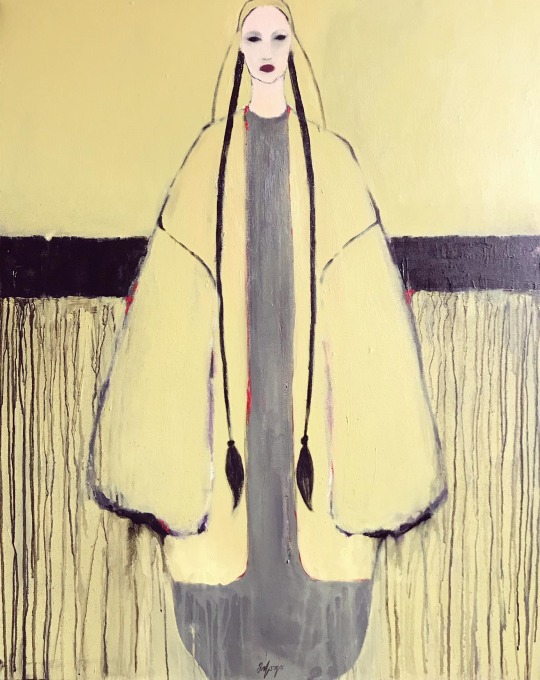
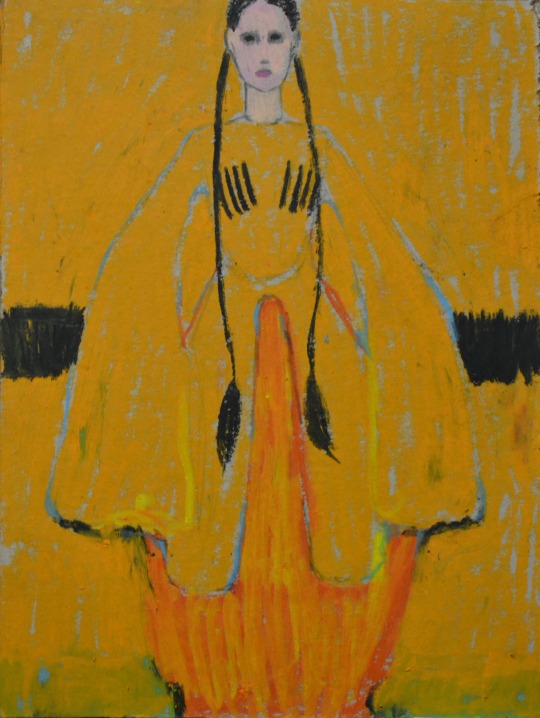
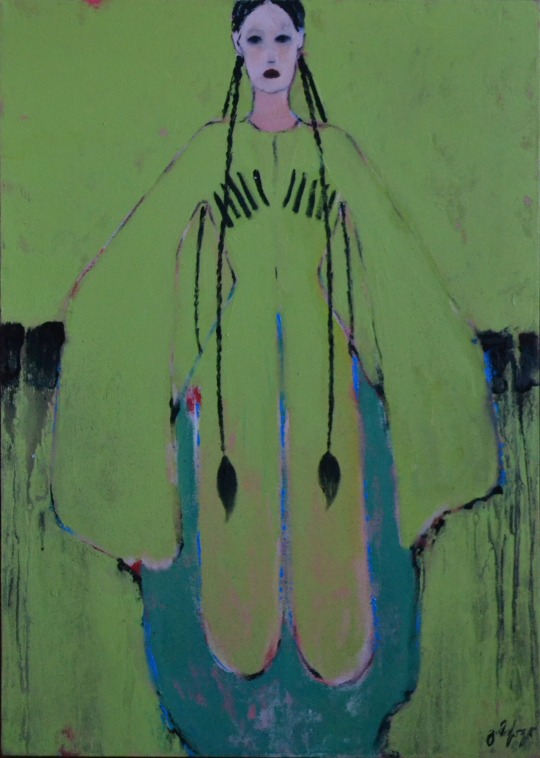
0 notes
Text
Ramen
mõtlesin, et kaua sa kartuli ja kanasuppi sööd. Tegin raamenit. Iidne Jaapani kokakunst, viis tähte ja värki. Ainus erinevus tavasupiga on, et puljong tehakse eraldi ja siiis kogumant lendab sinna peale. Kana, idud, sibil jne. Puljongi tegin õllekannu sisse. Suht lahe. Sööks veel. Okei on.



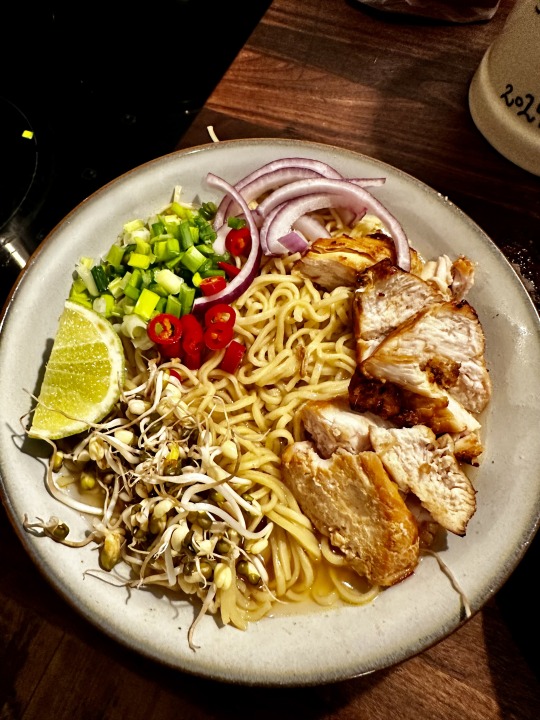
0 notes
Text
Открой для себя настоящую Мцхету
Всем привет!
Нас с моим компаньоном зовут Андрей и Сосо. Сосо всю жизнь живет в Мцхете и одним из первых в Грузии начал заниматься частным туризмом, Андрей переехал сюда зимой 23 года и всю жизнь занимается тем, что делает мир вокруг себя лучше.
Мы решили, что вместе сможем показать вам Мцхету такой, какой никто другой её не покажет. Мцхета — это не только город с четырьмя храмами, на изучение которого хватит одного дня. Мцхета — это живая история Грузии, христианства и цивилизации в Закавказье, это тысячелетия захватывающей истории в самом центре Евразии. Мцхета — это красивейшая природа и горы, Мцхета — это настоящая Грузия. Мы приглашаем вас в этот захватывающий мир.
Дальше мы будем рассказывать вам об экскурсиях и турах, которые мы можем вам предложить. Это могут быть приключения на один день, а может быть и насыщенная уникальными впечатлениями неделя.
For english ans kartuli you can scroll down soon
#Мцхета#Грузия#отдых#туризм#гид#экскурсия#mtskheta#georgia#sakartvelo#holyday#trip#guide#travel guide
0 notes
Video
youtube
LINK FOR SUBSCRIBE
HTTPS://VIDEGME
YOUTUBE CHANNEL HERE
████████��███████████████████████████████████
ENLACE PARA SUBSCRIBIRSE
HTTPS://VIDEGME
CANAL YOUTUBE AQUÍ
▓▓▓▓▓▓▓▓▓▓▓▓▓▓▓▓▓▓▓▓▓▓▓▓▓▓▓▓▓▓▓▓▓▓▓▓▓▓▓▓▓▓
LINK FULL
VIDEGME CATALOG
CATALOG HERE
▒▒▒▒▒▒▒▒▒▒▒▒▒▒▒▒▒▒▒▒▒▒▒▒▒▒▒▒▒▒▒▒▒▒▒▒▒▒▒▒▒▒▒▒
ENLACE CATALOGO
CATALOGO VIDEGME
COMPLETO AQUÍ
░░░░░░░░░░░░░░░░░░░░░░░░░░░░░░░░░░░░░░░░░░░░
#the #last #of #us #part #II #ps4 #full #game #level #14 #seattle #day2 #seattleday2 #hillcrest #hill #crest #1080p #60fps #sharpen
Subscribe you to my channel here this would help me a lot available in 60 languages.
If there is something I can do for you, do not doubt to tell me.
In English: Link to go to Computer
In English: Link to go to smartphone channel
In English: Link to go to smartphone video
Inglés - English
Español - Spanish
Holandés - Nederlands - Dutch
Azerí - Azərbaycan - Azerbayjani
Alemán - Deutsche - German
Latín - Lingua Latīna - Romae Imperiam
Bielorruso - Беларуская Biełaruskaja - Belarusian
Francés - Français - French
Bosnio - Босанци Bosanci - Bosnian
Portugués - Português - Portuguese
Búlgaro - български bəlɡarski - Bulgarian
Serbio - српски srpski - Serbian
Armenio - հայերեն hayeren - Armenian
Checo - čeština - Czech
Danés - Dansk - Danish
Estonio - Eesti - Estonian
Finés - Suomi - Finnish
Georgiano - ქართული ენა kartuli ena - Georgian
Griego - Ελληνικά - Greek
Chino - 中文 Zhōngwén - Chinese
Húngaro - Magyar - Hungarian
Islandés - íslenka - Icelandic
Hindú - हिन्दी - Hindi
Indonesio - Bahasa Indonesia - Indonesian
Hebreo - עִבְרִית ʿĪvrīt - Hebrew
Italiano - Italiano - Italian
Japones - 日本語 Nihongo - Japanese
Kazajo - қазақ qazaq - Kazakh
Suajili - Kiswahili - Swahili
Letón - Latviešu - Latvian
Lituano - lietuvių - Lithuanian
Luxemburgués - Lëtzebuergesch - Luxembourgish
Macedonio - Mакедонски Makedonski - Macedonian
Malayo - Melayu - Malay
Maltés - Malti - Maltese
Persa - رسی, Fārsī - Persian
Euskera - Euskaldunak - Basque
Javanés - ꦧꦱꦗꦮ - Javanese
Nepalés - नेपाली -Nepali
Noruego - Norsk - Norwegian
Úrdu - ردُو - Urdu
Filipino - Wikang - Tagalog
Polaco - Polski - Polish
Irlandés Gaeilge - Irish
Rumano - Română - Romanian
Ruso - Русский - Russian
Maratí - मराठी - Marathi
Eslovako - slovenčina, slovenský - Slovak
Esloveno - slovenski slovenščina - Slovene Slovenian
Afrikáanos - afrikaans - Afrikaans
Coreano - Hangugeo - Korean
Albanés - shqipë - Albanian
Sueco - Svenska - Swedish
Tailandés - ภาษาไทย, Phasa Thai -Thai
Turco - Türkçe - Turkish
Ucraniano - українці ukraintsi - Ucraininan
Vietnamita - Tiếng Việt - Vietnamese
Catalán Valenciano - català, valencià - Catalan Valencian
Galés - Cymraeg - Welsh
#youtube#the last#of#us#part2#partII#level#14#hill#crest#hillcrest#game#full#gamefull#1080p#60fps#sharpen
1 note
·
View note
Text
MBBS in Georgia | Top MBBS in Georgia Universities
Study MBBS in Georgia for Indian Students
Georgia is a beautiful country. It is located between Asia and Europe, hence has a good influx of both cultures. It is rich in culture, hospitality, heritage, and cuisine.
Studying MBBS in Georgia is gaining popularity as the Georgian Government and Medical Universities are encouraging foreign students, by providing them world's best facilities for studying MBBS in Georgia.
Quick Overview of MBBS in Georgia
Here are some facts about studying MBBS in Georgia for Indian students:
Degree Awarded
MD (Physician) equivalent to MBBS in India
Duration
6 years
Medium of Instruction
English Medium
Intake
September
Eligibility
50% in PCB + NEET
Qualified
NEET Requirement Yes, qualifying NEET is mandatory
IELTS/TOEFL
Not Required
Recognition
NMC and WHO approved
Type of Medical Universities Government
Tuition Fee Structure
Between USD 5,000 – 8000 per year
Living Cost
250 - 300 USD /
Month
MBBS in Georgia Fee Structure
Here is the list of the best top universities in Georgia with the latest fee structure.
Universities
Location
Year
Type
Ist Year
II - VI
Year
Total in
USD
Total Fee in
INR @ 74
(Approx)
Tbilisi State Medical University
Tbilisi
1918
Govt
6500
6500
39000
2,925,000
David Tvildiani Medical University
Tbilisi
1991
Private
8000
8000
48000
3,600,000
Ivana Javakhishvili Tbilisi State
University
Tbilisi
1918
Govt
7000
7000
42000
3,150,000
University of Georgia
Tbilisi
2004
Private
5500
4500
28000
2,100,000
Georgian American University
Tbilisi
2001
Private
5500
5500
33000
2,475,000
Akaki Tsereteli State University
Kutaisi
1933
Govt
4500
4500
27000
2,025,000
East European University
Tbilisi
2012
Private
5000
5000
30000
2,250,000
Geomedi medical university
Tbilisi
1998
Private
5500
5500
33000
2,475,000
AIETI Medical School
Tbilisi
1989
Private
5500
5500
33000
2,475,000
Batumi Shota Rustaveli State University
Batumi
1895
Govt
4000
4000
24000
1,800,000
All above Fee Structure is on basis of Old Acadmic Year.
For Latest Fee Structure Contact to Vidyaedify.
Admission Process for MBBS in Georgia
MBBS admissions at Georgia can be summarized in the following steps:



Contact Us today for a Free Consultation.
Eligibility to Study MBBS inGeorgia
There are certain requirements Indian students seeking to study MBBS in Georgia must meet.



Documents Needed
Here is the list of documents you will require when applying for MBBS in Georgia:




Contact Us today for assistance with your admission application.
Detail – Eligibility & Documents – Click Here Benefits of Studying MBBS in Georgia
Following are the benefits of studying MBBS in Georgia:
Economical Fees
Low-cost tuition MBBS fees of medical universities in Georgia.
Easy Admission Process
Easy and simple process for admission.
Internationally Recognised Degree
: Colleges and universities in Georgia are approved by MCI and WHO.
Good Facilities & Infrastructure
Well-equipped medical facilities.
No additional tests
No requirement of IELTS and TOEFL scores.
Medium of Education
The language of instruction is English.
Subject Expertise
Excellent education structure and extensive medical curriculum.
Scholarships available
Scholarship facilities are granted to deserving students.
About Georgia Key Facts
Geographic Location
At the intersection of Eastern Europe and Western Asia.
Population
39.89 Lakhs
Currency
Georgian Lari
Calling Code
+995
Main Religion
Christianity
Language
Georgian
Major Cities
Augusta, Columbus, Savannah
Top Sights to visit
• Bridge of Peace
• Narikala Fortress
• Holy Trinity Cathedral of Tbilisi
Georgia is officially known as the Republic of Georgia. Its capital is Tbilisi. The official
language is Georgian Kartuli Ena. Georgian lari is the currency used in Georgia. Earlier it was a part of Russia (USSR Soviet), later in 1991 it won Independence and became a Republic surrounded by the Dead Sea, Russia, Turkey, and Azerbaijan.
Education System in Georgia
Studying MBBS in Georgia is on a rise among Indian students. Every year 500 plus students are opting for admission here. The reason is the low-cost education which comes with outstanding perks. Within 15 lacs to 20 lacs you can cover your full MBBS fees in Georgia. The Government of Georgia has taken steps to increase foreign students in medical colleges in Georgia. It focuses on providing the best learning experience to every student. The student-teacher ratio is 1:20 which allows for high quality of interaction and learning.
Studying in medical colleges of Georgia has the perks of excellent training (facilities and professors), learning diagnostics, studying pathology, handling of patients, practicing medical care, and much more. Medical colleges and universities in Georgia have been approved by the National Medical Commission, WHO, and IMC.
Georgia has more autonomy in terms of internal matters since it’s an independent country. Earlier it was part of the EU up to 1991. It has the best medical facilities; it has some of the best universities to study MBBS from Georgia. They heavily invest in research and development. After completion of the course, they provide internships and jobs too.
The medical curriculum is approved by MCI and WHO. Tuition fees are the lowest from the rest of the leading world universities.
The total duration to complete MBBS in Georgia is five years and a one-year internship. After completion of the MBBS in Georgia, you will have to qualify for FMGE to receive a license and practice in India.
India - Georgia Relations
India and Georgia have healthy relations. There is a thriving exchange of cultures, business relations, trade and economics, research & development between the two countries. Indian Leaders have been frequent to Georgia and vice versa. The Indian community is growing quite strong and gets good local support. Studying MBBS from Georgian universities with the lowest tuition cost and premium education facilities is the best decision. There are plenty of opportunities across the world which open up for students after studying MBBS from Georgia.
Contact Us today to know more about studying in Georgia.
0 notes
Text
Beatport The Shortlist: Melodic H&T April 2023

- DATA CREATED: 27/04/2023
- QUALITY: MP3/320 kbps
- GENRE: Melodic House & Techno
Tracklist
Grigoré - Strange World
She Knows - Something To Save - The Organism Remix
Guzy - Hydra
Gespona, Abuk - Komenko
GEMINIS - Mind Games - Extended Mix
Tamada - Shara - Trikk Selva Kartuli Vocal
Tomper, Nukad - Tara
Airwolf Paradise - No Return
Agustin Giri - Between Visions
Tal Fussman - Move Your Hips
Onur Ozman - Limits of Dreaming Reality Starts
Cubicolor - Summer & Smoke - Trikk Selva Furia Extended Mix
KASIA (ofc) - Universal Nation - Extended Mix
Super Flu - We You - Extended Mix
M.A.N.D.Y., Booka Shade - Body Language - Patrice Bäumel Remix
Isolee - Rumour
Download FileCat
Read the full article
0 notes
Text
Beatport The Shortlist: Melodic H&T April 2023

- DATA CREATED: 27/04/2023
- QUALITY: MP3/320 kbps
- GENRE: Melodic House & Techno
Tracklist
Grigoré - Strange World
She Knows - Something To Save - The Organism Remix
Guzy - Hydra
Gespona, Abuk - Komenko
GEMINIS - Mind Games - Extended Mix
Tamada - Shara - Trikk Selva Kartuli Vocal
Tomper, Nukad - Tara
Airwolf Paradise - No Return
Agustin Giri - Between Visions
Tal Fussman - Move Your Hips
Onur Ozman - Limits of Dreaming Reality Starts
Cubicolor - Summer & Smoke - Trikk Selva Furia Extended Mix
KASIA (ofc) - Universal Nation - Extended Mix
Super Flu - We You - Extended Mix
M.A.N.D.Y., Booka Shade - Body Language - Patrice Bäumel Remix
Isolee - Rumour
Download FileCat
Read the full article
0 notes